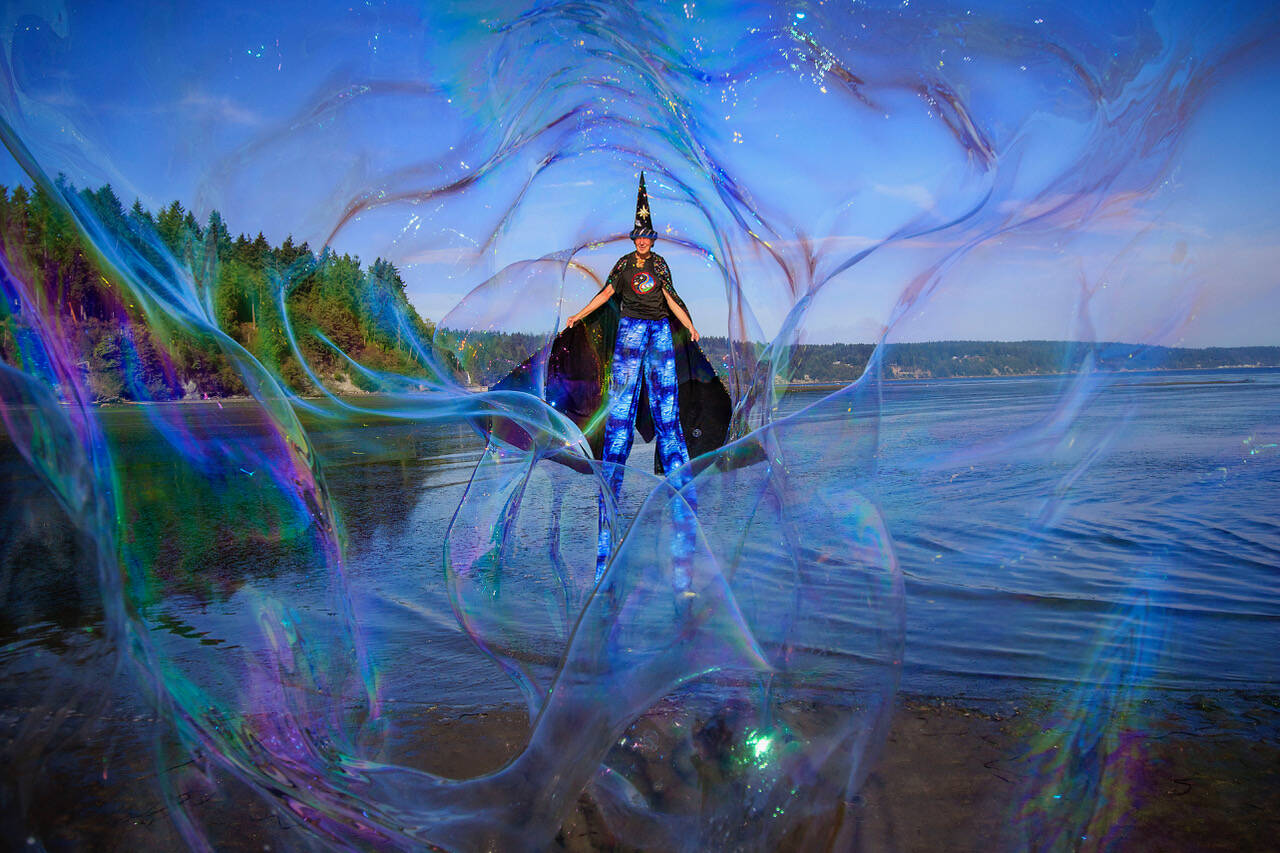David Welton likes to imagine that people will someday look at his photos and learn a lot about life on Whidbey Island in the early 21st century.
Ever since he moved to Clinton in 2005, Welton has been capturing photos of island residents engaged in both events and everyday activities. A lifelong photographer at 74 years of age, he’s witnessed the evolution of the camera, from darkrooms to digital technology.
Welton will share some of his photography at an upcoming event from 5:30 to 7 p.m. on Thursday, Dec. 1 at Clinton Community Hall.
At the age of 8, Welton received his first camera – a Kodak Brownie Starflash and a home darkroom kit. It was a birthday present from his grandmother, a painter who liked to take photo slides.
“On Sunday, whenever we had dinner at her house, she would bring out the slide projector and show these things,” Welton recalled. “The colors were gorgeous. They still are.”
His childhood hobby was rekindled in college, when he discovered that there was a darkroom for students to use. While attending medical school, he bought a photo enlarger and set it up in the bathroom.
“It was very relaxing for me, to watch the pictures develop,” he said. “It would just appear under the safe light. It was kind of like magic.”
Although he went on to become a doctor, he continued to teach himself about photography by reading books, attending workshops and appreciating art.
“It’s right-brained activity. People don’t understand that with photography. It’s not just a machine that you point and shoot and get a good picture,” he said. “Maybe now it is, but back then it wasn’t.”
Coincidentally, while in the medical field, Welton had the chance to look into the eyeball of one of his heroes. Growing up, he had been fascinated by photojournalist W. Eugene Smith’s series called “Country Doctor” featured in Life magazine and cited it as one of the reasons he decided to go to medical school. Smith came to him as a patient with some optical issues, but Welton didn’t recognize him until afterwards.
After a successful career as an interventional cardiologist in Santa Barbara, California, Welton was looking for a quieter job that didn’t involve 80-hour work weeks and on-call nights and weekends. He and his wife picked up and moved to Whidbey Island when he accepted a position as a cardiologist with the University of Washington.
Starting out, many of his photographs originated from his ferry commute, which he did until his retirement in 2014. He also began learning about events specific to South Whidbey, such as the Polar Bear Plunge in Freeland and the Soup Box Derby in Langley.
“I realized that there was a lot of stuff going on, there were a lot of interesting people on Whidbey Island and I have pictures of them all,” he said. “Some of those people are dead now, or they’ve moved off island.”
Now, nearly two decades later, he’s collected 10,000 photos. He’s had to sift through them all in order to find about 100 that he will present at his Dec. 1 event.
Earlier this year, Welton joined the staff of the South Whidbey Record as an award-winning photographer. He hasn’t backed down from a challenge, whether it’s a snapping turtle, a haunted locale or a rainy day of work.
“I get the opportunity to see what’s going on and I meet new people and I have fun talking to them,” he said. “I think I’m pretty gregarious. I think I’m outgoing. I don’t mind talking to people. Being a doctor and talking to probably 10,000 people over the course of my career kind of helps with that.”
His “second career,” as he refers to it, allowed him to save up enough money for a brand-new mirrorless camera.
He likens his work to that of Francis Meadow Sutcliffe, a pioneering photographer who captured a record of life in the seaside town of Whitby, England.
“Some day I may be well-known. Who knows? I’ll be dead for sure,” he said with a laugh.



